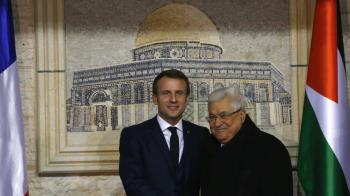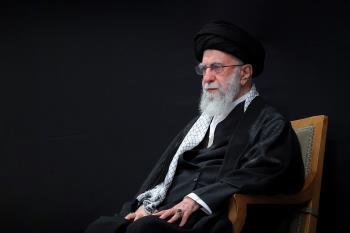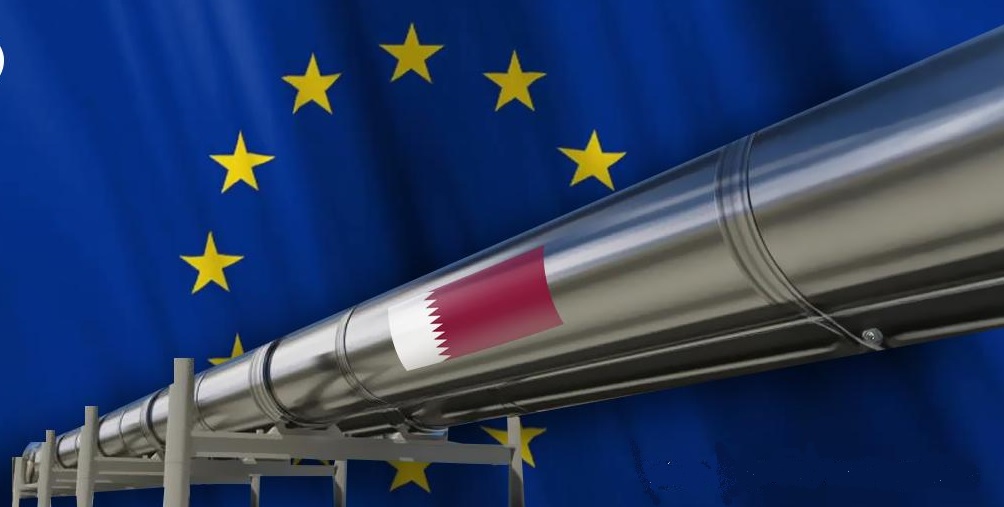Alwaght- Despite the fact that Qatar is one of the main liquid natural gas (LNG) suppliers to the European countries, recently a debate over implementation of an environmental law in the European Union has stirred tensions between the Arab state and the European bloc, to the degree that some Qatari officials have threatened to cut off gas exports to the EU.
EU environmental requirements
In May 2024, about a year ago, the EU approved new standards for “net-zero greenhouse gas emissions by 2050.” Under new EU environmental rules, large companies operating in the bloc will be required to certify that they do not use forced labor and that their operations do not cause environmental damage. Otherwise, companies that violate the rules could face financial penalties of up to 5 percent of their global revenue.
Qatari anger
Qatar is eyeing a broader energy role in Asia and Europe and intends to increase its LPG production to 142 million tons annually by 2027. This figure is currently 77 million tons.
Having in mind that the EU’s insistence on strict compliance with new environmental and labor regulations could lead to financial penalties for Qatari gas exports to Europe, Qatar has grown angry by the new laws. The German newspaper Welt am Sonntag reported that Qatar could stop supplying LPG to the EU altogether if the European Commission insists on implementing key climate protection requirements.
The newspaper cited a four-page letter that Saad Al-Kaabi, Qatar’s Minister of State for Energy and CEO of Qatar Energy, sent to the Belgian government and other European governments in May, in which he explicitly warned that Qatar’s LPG exports to the EU could be cut off. In his letter, Al-Kaabi stressed the need for serious adjustments and changes to climate rules by the EU. The letter states that if no change is made, Qatar and Qatar Energy will be forced to seek alternative markets for their LNG exports and other products outside the EU.
The Qatari official also warned last year that Qatar would stop supplying gas to the EU if EU countries imposed new rules on labor and environmental harms. Al-Kaabi told the Financial Times at the time that “if we lose 5 percent of our gas sales revenues to Europe due to fines, I will never sell gas to Europe, because percent of QE’s revenue means 5 percent of the income of all Qatari.
Europe in a dilemma
Currently, with the Europeans insisting on adhering to environmental requirements and Qatar’s anger at the possibility of fines and deductions from their income from gas sales in Europe, European countries will face two options: “Either they will be forced to think about replacing Qatari gas with another source in difficult geopolitical conditions, or they will reach an agreement with Qatar and adjust the law or postpone its implementation.”
At the same time, it seems that if the new European environmental laws are implemented, they will affect not only Qatar Gas, but also other foreign companies and the supply chain in Europe may be disrupted.
On the other hand, given that the EU is trying to ensure its energy supply from sustainable sources by 2050, it is more likely that the Europeans will bow to Qatar’s threats.
It should also be taken into account that Qatar is not facing any challenges in selling its gas and replacing sales markets with other markets. Rising gas demand in Asian markets such as China and India has opened up more lucrative alternative opportunities for Qatar, without the burdensome restrictions. In addition, Qatar’s proximity to Asian markets gives it a geographical advantage for easier sales of LPG.
Qatar’s position in EU gas market
In general, after Russia and Iran, Qatar has the world’s third largest gas reserves. Additionally, it is of high quality and high purity, making it fit for household and industrial consumption.
Qatar’s LNG exports to the European Union increased by 13.7 percent in the first quarter of 2025 compared to the same period last year. According to Al-Sharq newspaper, Qatar’s gas exports to Europe in the first quarter of 2024 were about 2.33 million tons, and these exports have reached approximately 2.65 million tons in the past six months.
At the same time, the US remains the top supplier of LNG to Europe in the first quarter of 2025, with its exports increasing by 19 percent.
The US, Qatar, Algeria, and Russia are the largest LPG suppliers to Europe. The US currently holds about half of the LNG market of Europe. Qatar is a key rival to the US in this market. Russia, too, remains a holder of a considerable share in this market, though its share has dropped under the influence of the Ukraine war, making it the third and sometimes the fourth supplier after the US, Qatar, and Algeria.



























